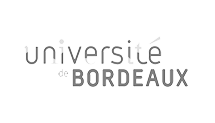Curriculum policy
We organize and implement a curriculum that not only develops expertise in the physical benefits and safety of food resources and health foods but also considers the manufacture and processing of foods. Classes are divided into a Foundation Course which teaches the academic basics of food and health and the basics of management etc., a Specialized Course I which cultivates the ability to identify and solve problems and the disposition of a high-level specialist through practical study, and a Specialized Course II which develops expertise in health and food resources. We also place importance on practical learning such as field activities and internships with the aim of developing high-level international professionals who have the expertise and practical skills to be able to bridge the gap between the global community and R&D. Because the program also places importance on fostering the ability to appropriately investigate and analyze real food and health related challenges and to make proposals with practical and proven effectiveness, students must produce a special subject research report, rather than a master’s thesis, showing the outcomes of their research on a particular food and health issue. Furthermore, to fully capitalize on the merits of the international joint degree program run by our three universities, all students study at the University of Tsukuba in the first semester, National Taiwan University in the second semester, and the University of Bordeaux in the third semester. In the fourth semester, students study at any one of the three universities depending on the theme of their special subject research and their post-graduation aspirations.
Overall picture of curriculum

Learning goals for each semester
For the three universities to jointly organize and implement a sequential and systematic curriculum in accordance with the program’s human resource development goals, the abilities taught each semester are as follows.
First semester – University of Tsukuba
Specialized basic skills related to health and food resources, expertise in evaluating the physical benefits and safety of substances, entrepreneurial spirit, management skills, specialized English skills
Second semester – National Taiwan University
Expertise related to health and food resources, ability to identify and resolve issues in Asia’s social and natural environments, fundamentals of R&D and project management in Asian companies
Third semester – University of Bordeaux
Expertise related to links between health and food resources and to evaluation and development of food resources, ability to identify and resolve issues in Europe’s social and natural environments, European corporate circumstances and food safety policies, career development and professional awareness
Fourth semester – Any one of the three universities
Further expertise on research theme, career path enhancement through corporate internship, practical skills depending on career after graduation
- - - - -
National Taiwan University
Taiwan is a country known for its rich biodiversity and heritage for traditional Chinese medicine, both of which stem from its unique natural environment of subtropical and tropical climates, high mountains, and diverse ocean. The strengths of National Taiwan University, which is in possession of 1% of the land in Taiwan, are founded on this rich environment, and include the areas of biotic resources, agriculture, medical science, public health, and life science. From these strengths, and with a perspective focused on the discovery and use of natural resources, National Taiwan University offers the following specialized fields/areas in food security, health security, and the connection between food resources and health.
- Food Security
- Preservation, Development, and Evaluation of Biotic Resources of Tropics/Subtropics, High Mountains, and the Ocean
- Food Product Engineering, Development and Evaluation of Food Product Safety Assurance
- Health Security
- Effects of Functional Molecules on Health
- Social Effects of Natural Small Molecules
- Connection between Food Resources and Health
- Discovery and Evaluation of Resources for Chinese Medicine
- Development and Evaluation of Value-added Food Products from Medical and health aspect as well as Chinese Medicine Resources
In addition, several NTU-existed educational centers and programs, such as Teaching and Learning Development Center, NTU Garage, NTU SPARK, Center for Biotechnolgy, Center for Genomic Medicine, Incubation Center, E-Learning system, Corsera and MOOC can also offer great supportive resources for this specialized program.
University of Tsukuba
One of the defining features of the University of Tsukuba is that it offers the possibility for conducting interdisciplinary educational research. Capitalizing on this characteristic, University of Tsukuba takes on academic areas that do comprehensive research at the molecular/genetic level from a perspective of the cross-sectional field of agro-biomedical science that encompasses "from food resource development to heath impact." In this lies the University of Tsukuba’s strength: that it can establish a coherent research/education system through the fusion of the separate specialized areas of food, agriculture, environment, and health. Specifically, it offers the following specialized fields/areas related to Food Security, Health Security and the link between Food Resources and Health.
- Food Security
- Development and Evaluation of Valuable Crop Genetic Resources
- Effects of Natural Small Molecules on Biological Resources
- Health Security
- Effects of Natural Small Molecules on Health
- Connection between Food Resources and Health
- Development and Evaluation of High Value-added Crop Genetic Resources
- Development of High Value-added Food Products Utilizing Crop Genetic Resources
- Effects of Agricultural Products and High Value-Added Food Products on Health
University of Bordeaux
Two defining features of the University of Bordeaux are its location, where it is at the center of the European agricultural area, and its advanced system for research, which is based on the concept of academic and educational fusion through Mixed Research Units (UMRs). University of Bordeaux offers the possibility of doing comprehensive and interactive research/education in cross-disciplinary academic areas "from the field environment-level to the molecular/genetic-level". Research fields include the study of global warming impacts in crop production and related issues, as well as in food health relationships. The strength of University of Bordeaux lies in its provision of developmental research education through cooperation with companies.Specifically, University of Bordeaux offers the following specialized fields/areas:
- Food Security
- Plant biotechnology, Plant breeding, Plant pathology, Natural substances, Bioactive Nutraceutical, Food production and transformation, Plant Ecophysiology, Wine & Health, Metabolomics, Proteomics, Epigenetics, food supplement,
- Health Security
- Microbiological diagnosis and epidemiology at the molecular level; Expertise in viral, bacterial, parasitic and fungal diseases; molecular resistance to antimicrobial treatment; innate and cellular immune response; inflammation and inflammasome; chronic inflammatory diseases of the gastro-intestinaI tract;
- Food-linked physiological disorders and diseases.
Courses Plan
|
課程名稱 |
學分數 |
必/選修 |
|
臺灣大學 |
||
|
Agriculture of Taiwan臺灣農業--陳明汝教授 |
2 |
選 |
|
Biotechnology in Milk Products--陳明汝教授 |
2 |
選 |
|
生物材料生產分析與應用--陳世銘教授 |
2 |
選 |
|
分子生物與細胞學--李心予教授 |
2 |
選 |
|
前瞻生物科技論壇--沈湯龍教授 |
3 |
選 |
|
生物分子交互作用之網絡--沈湯龍教授 |
2 |
選 |
|
碩士生專題討論--沈湯龍教授 |
2 |
必 |
|
微生物學及免疫學研究法--鄧述諄教授 |
2 |
必 |
|
免疫學概論--李建國教授 |
3 |
選 |
|
Applied Translational Microbiology應用轉譯微生物學--沈湯龍教授 |
3 |
選 |
|
Seminar courses 專題討論--沈湯龍教授 |
2 |
選 |
|
Contemporary Issues in Global Health 當代全球衛生議題--詹長權教授 |
3 |
必 |
|
Sustainable Health and Environment 永續健康與環境-- 詹長權教授 |
3 |
選 |
|
Global Health LIVE 全球衛生實況轉播--詹長權教授 |
2 |
選 |
|
功能性 Non-Coding RNA 新知--林劭品教授 |
2 |
選 |
|
小分子核酸與基因沉默機制--林詩舜教授 |
3 |
選 |
|
高等生物科技特論(一)--劉嚞睿教授 |
3 |
必 |
|
動物胚胎與生物技術新知--劉嚞睿教授 |
2 |
選 |
|
高等工業微生物學特論--鄧述諄教授 |
3 |
選 |
|
Lab Internship I |
|
|
|
Corporate Internship II |
|
|
|
日本筑波大學 |
||
|
イニシエーションセミナー |
1 |
|
|
アントレプレナーシップ(Enterpreneurship Training: Maketing, Management & Planning) |
4 |
|
|
グローバルイノベーション概論(Introduction of Global Innovation) |
1 |
|
|
キャリア&コンピテンシー開発(Career and Competency Development)I |
1 |
|
|
キャリア&コンピテンシー開発(Career and Competency Development)IV |
1 |
|
|
グローバルイノベーション特論(Advanced Global Innovation Training) |
|
|
|
グローバルイノベーション研究I(Research and Development for Global Innovation I ) |
3 |
|
|
グローバルイノベーション研究II(Research and Development for Global Innovation II) |
3 |
|
|
グローバルイノベーション研究III(Research and Development for Global Innovation III) |
3 |
|
|
グローバルイノベーション演習I(Global Innovation Laboratory Seminar I) |
1 |
|
|
グローバルイノベーション演習II(Global Innovation Laboratory Seminar II) |
1 |
|
|
グローバルイノベーション演習III(Global Innovation Laboratory Seminar III) |
1 |
|
|
フィールドと実験室の融合Ⅰ(Fusion of Field and Laboratory Studies I) |
3 |
|
|
フィールドと実験室の融合Ⅱ(Fusion of Field and Laboratory Studies II) |
3 |
|
|
Lab Internship I |
|
|
|
Lab Internship II |
|
|
|
Lab Internship III |
|
|
|
Corporate Internship I |
|
|
|
Corporate Internship II |
|
|
|
Corporate Internship III |
|
|
|
法國波爾多大學 |
||
|
Initiation Seminar |
|
|
|
Entrepreneurship Training |
|
|
|
Introduction to GIP |
|
|
|
International R&D Management |
|
|
|
Genomics |
3 |
必 |
|
Molecular Evolution |
2 |
選 |
|
Plant-animal Interactions |
2 |
選 |
|
Numerical Methods in Community Ecology |
3 |
選 |
|
Seminar in Developmental Biology |
2 |
選 |







